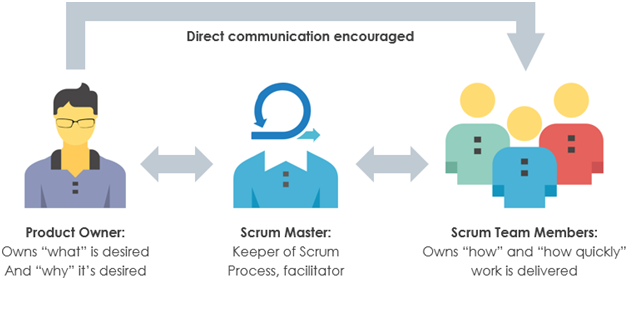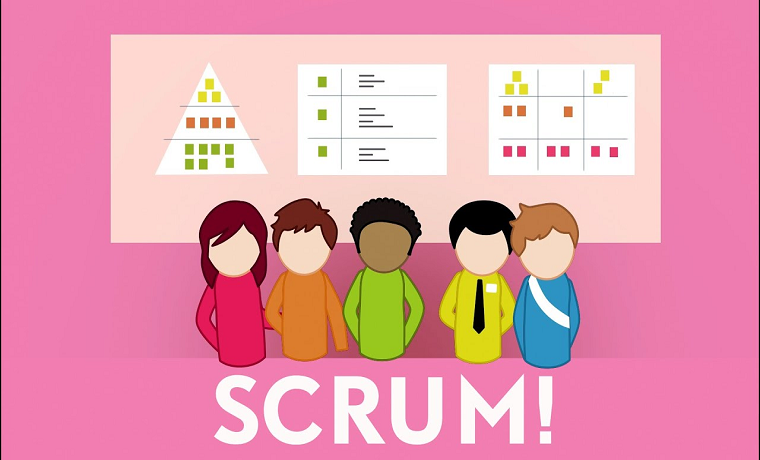Do you own or manage a product development company for software products or otherwise?
Do you wish to deliver better quality products?
Do you wish to deliver before the deadlines?
Do you wish to have teams that work most effectively?
Do you want more output with fewer input resources?
In most probability, the answers to the above questions are yes (unless you want your business revenues to plunge). If the answer is yes, then you can almost say you are saying yes to the Agile approach. Agility literally means the ability to move quickly and easily. Accordingly, the Agile approach means bringing flexibility and efficiency to the product development process.
Conceived a few decades ago, the Agile methodology started gaining traction in the early twenty-first century. It places focus on teams that collaborate by self-organizing and accept changes in requirement or external affecting factors. An important framework under Agile is Scrum. Scrum abides by everything in Agile, while bringing in some specific principles, values, and ways of developing a product.
A Product Owner is a crucial part of the Scrum team, and with the rise in the adoption of Scrum, the rise in requirements of Certified Scrum Product Owners is natural. A CSPO Certification can thus be a promising step towards a career as a CSPO, given that your work is related to product development.
A Bit About Scrum
Scrum is an Agile framework that consists of teams, usually of three to nine members. Instead of having a single, rigid and long term goal in terms of a product, Scrum focuses on having shorter, time defined goals, also known as sprints. Sprints focus on delivering a product (usually a software) in intervals and continuously instead of just once at the end. Scrum includes standing meetings, called daily Scrums, to track progress and re-plan things.
Planning and re-planning is an essential part of Scrum as one of the major principles in Scrum is to accept the fact that requirements will evolve as the development journey moves forward, and that teams should always be ready to make sudden changes to the plan and move accordingly.
This is possible only if the teams are self-organized. This requires the elimination or reduction of frequent authorizations of changes. This also requires team members to be multi-faceted so as to be able to handle diverse tasks in the absence of a particular expert.
The Scrum Team
The Scrum Team consists of the following:
- Scrum Master: The Scrum Master is in charge of clearing all obstacles in the way of continuously implementing the Scrum framework. He also acts as a communicator within and outside of the team.
- Scrum Product Owner: A Product Owner is considered a key stakeholder in any project. He is responsible for having/creating a clear vision of what is expected to be built and communicates it to the development team.
- Development Team: The development team consists of Scrum Developers that together make a self-organizing, flexible unit that works on the product to be developed while adapting to any number of changes at any stage of the development.

The Scrum Product Owner, in particular, plays a pivotal role by taking care of the following responsibilities:
- Organizing meetings for product demos
- Defining and announcing release dates and releases
- Communicating status about development and delivery
- Sharing RAID (Risks, Assumptions, Issues and Dependencies) with stakeholders
- Negotiating priorities, scope, funding, and schedule.
- Ensuring that the product backlog is visible, transparent and clear
Career As a Certified Scrum Product Owner
We have already established the fact that a career in Scrum would be certainly a great choice. Let us speak about the specifics. Certified Product Owners command an attractive average salary of $114,130, according to Glassdoor. This is a significant figure in relation to most other product development jobs.
How to Go About It
It is a clever decision to pursue a career as a Certified Scrum Product Owner. In order to do so, you will have to enrol for a CSPO course that gives practical training and is conducted by Certified Scrum Trainers (CSTs). At the end of the course, you are required to give an exam. Clearing this exam gets you certified with a license from a Scrum agency such as Scrum Alliance, one of the largest institutions for Scrum.
On having this license, one can apply for the job of a Product Owner in another or the existing organization and can significantly benefit from it while bringing measurable benefits to the organization as well.

